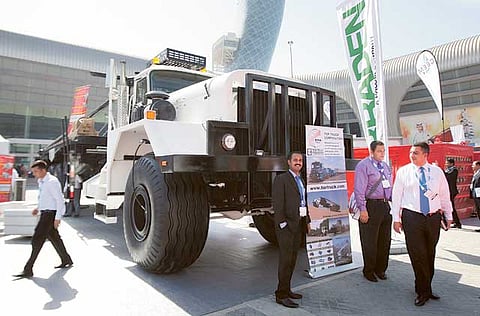GCC energy subsidies too high, ministers say
UAE, Oman say energy subsidies driving consumers to excessive consumption

Abu Dhabi: Subsidies are to blame for increasing and excessive energy consumption in the UAE and other Gulf Cooperation Council (GCC) countries, regional energy ministers have said.
Speaking on a panel at the Abu Dhabi International Petroleum Exhibition and Conference (Adipec) on Sunday, Suhail Mohammad Al Mazroui, Minister of Energy for the UAE said consumers in the UAE are wasting energy because of the low cost.
In the GCC, energy producing countries such the UAE heavily subsidise energy costs, including the price of oil and utilities, for its residents. The countries then rely on the high price of crude oil exports to manage their budgets.
Dr Mohammad Bin Hammad Al Rumhy, Oman’s Minister of Oil & Gas, who was also speaking on the panel, echoed Al Mazroui’s comments.
He said that as consumption increased the consumers in the Gulf were taking advantage of the government subsidies noting that too often people in the GCC will unnecessarily opt for vehicles that have big engines and are not fuel efficient.
But Al Rumhy went one step further than Mazroui and said that the price of oil had to be increased for local consumers.
“What is [sic] destroying us is high subsidies,” he said.
Shale
Growth of shale oil and gas is expected to hit Gulf exporters with the United States set to become a net exporter in the coming years. Other countries, including China and the United Kingdom, are making significant investments in the shale sector.
Shale oil production in the United States has already hit some Organisation of the Petroleum Exporting Countries (Opec) countries, with Nigeria and Algeria already seeing a decline in US demand.
Mazroui said there was an exaggeration on the impact of shale gas — he said that while the price of gas could be reduced it would not collapse under the shale gas revolution.
The International Monetary Fund has warned that Oman’s state finances could slide into deficit in coming years because of recent public spending rises.
In 2010, the UAE government hiked its domestic gasoline price to 1.72 dirhams ($0.47) per litre to cut the burden of subsidies on public finances and promote efficiency. But after the Arab Spring uprisings began in the following year, plans for further price rises were put on hold.
Spend heavily
Omani diesel is still so cheap that trucks from the UAE drive over the border to fill up on it.
Population growth and artificially low energy prices in the GCC member countries — Bahrain, Kuwait, Oman, Qatar, Saudi Arabia and the UAE — mean the countries that the world has long relied upon for oil and gas need to spend heavily over the next decade just to meet their own energy needs.
According to a study published by consultants IHS on Sunday, over $1 trillion of investment is needed over the next 17 years to meet demand for gas and electricity in the Middle East and North Africa.
IHS estimates that demand for natural gas in the GCC is likely to rise more than 50 per cent, from 256 billion cubic metres (bcm) in 2011 to 400 bcm in 2030. Oil demand will also grow more than 50 per cent in the next 17 years, from around 4 million barrels per day to over 6.2 million bpd, IHS said.
With inputs from Reuters



